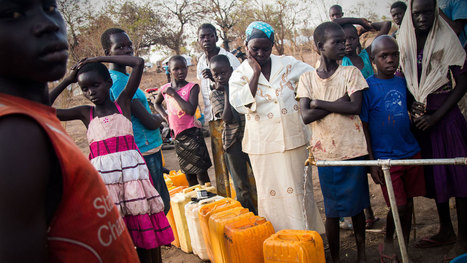This is the story of how Sudan became two nations, and of an ongoing conflict in the Nuba Mountains that has changed the lives of millions of people. In parts 2–5 of our VR series, We Who Remain, follow the lives of four people living through the war: http://ajplus.co/nuba360. Produced in partnership with Nuba Reports and Emblematic Group.
Via Ben Salve



 Your new post is loading...
Your new post is loading...













The first video in this 5-part video is a bit slow, but provides the historical and geographic context needed to understand the developmental, ethnic, and political issues that remain so difficult to resolve. The Subsequent four videos provide a more human, personal glimpse into facets of the conflict.
Tags: Sudan, political, ethnicity, Africa, war.